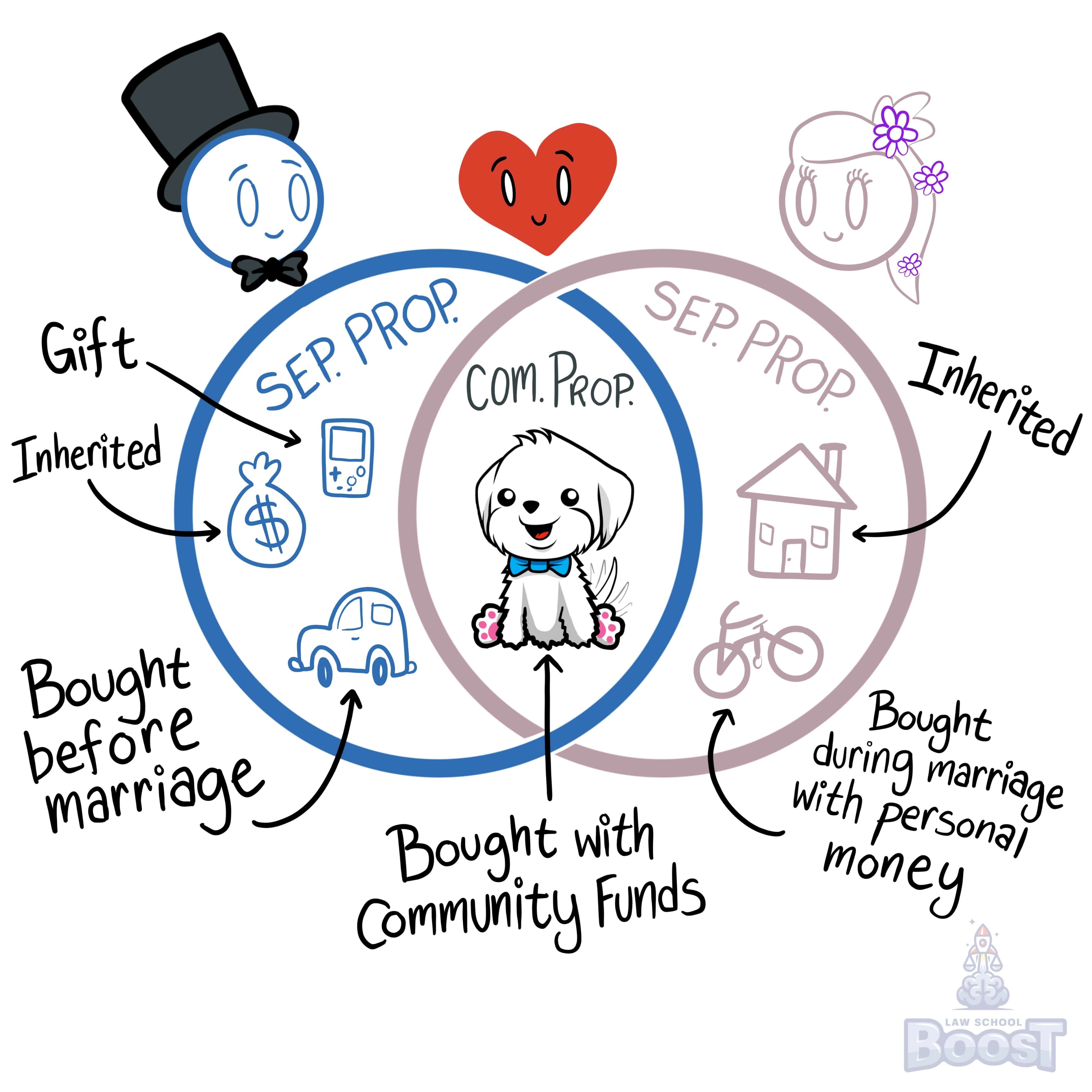🤧
Community Property • Introduction
CPROP#000
Legal Definition
One of the first things you'll notice about Community Property law questions is that they will generally involve heterosexual couples. In fact, as of this writing, they have not yet tested a same-sex couple as a fact pattern. This is likely for convenience, as "Husband" is abbreviated as "H" and "Wife" is abbreviated as "W." This makes it easy to say "H did X, and W did Y" without causing confusion as to who did what and what rights may be at play (e.g., if it said "H wants to divorce H, but H feels that H should pay spousal support," it gets a bit muddy).
Generally speaking, there are four different scenarios you should keep an eye out for on Community Property questions:
(1) If it's an essay question, and the parties were married in California, congratulations — this is a basic community property question that will deal with figuring out who owns which assets or debts. Often times, you are asked to approach from the perspective of a creditor and try to figure out whose money or property you can go after.
(2) If you're dealing with a question where the parties got married in a non-community property state and then move to California, part of the question will deal with something you'll learn about in these cards called "quasi-community property."
(3) If the question involves a couple that isn't legally married, but one of them genuinely believes they are married, you will be addressing "putative marriage" and "quasi-marital property."
(4) Lastly, and very rarely, sometimes an exam will be unmarried cohabitants where neither party thinks they are married and the question is simply trying to trick you into applying community property laws. In reality, you will be looking to things like implied contract laws and possibly equitable remedies. Don't get fooled.
To make things easier on yourself when dealing with community property questions, try doing some preparation before you start writing. Make note of who acquired the property discussed, how it was acquired, and when it was acquired. These factors will influence the outcome of your answer and whether or not you get it correct.
Generally speaking, there are four different scenarios you should keep an eye out for on Community Property questions:
(1) If it's an essay question, and the parties were married in California, congratulations — this is a basic community property question that will deal with figuring out who owns which assets or debts. Often times, you are asked to approach from the perspective of a creditor and try to figure out whose money or property you can go after.
(2) If you're dealing with a question where the parties got married in a non-community property state and then move to California, part of the question will deal with something you'll learn about in these cards called "quasi-community property."
(3) If the question involves a couple that isn't legally married, but one of them genuinely believes they are married, you will be addressing "putative marriage" and "quasi-marital property."
(4) Lastly, and very rarely, sometimes an exam will be unmarried cohabitants where neither party thinks they are married and the question is simply trying to trick you into applying community property laws. In reality, you will be looking to things like implied contract laws and possibly equitable remedies. Don't get fooled.
To make things easier on yourself when dealing with community property questions, try doing some preparation before you start writing. Make note of who acquired the property discussed, how it was acquired, and when it was acquired. These factors will influence the outcome of your answer and whether or not you get it correct.
Visual Aids



